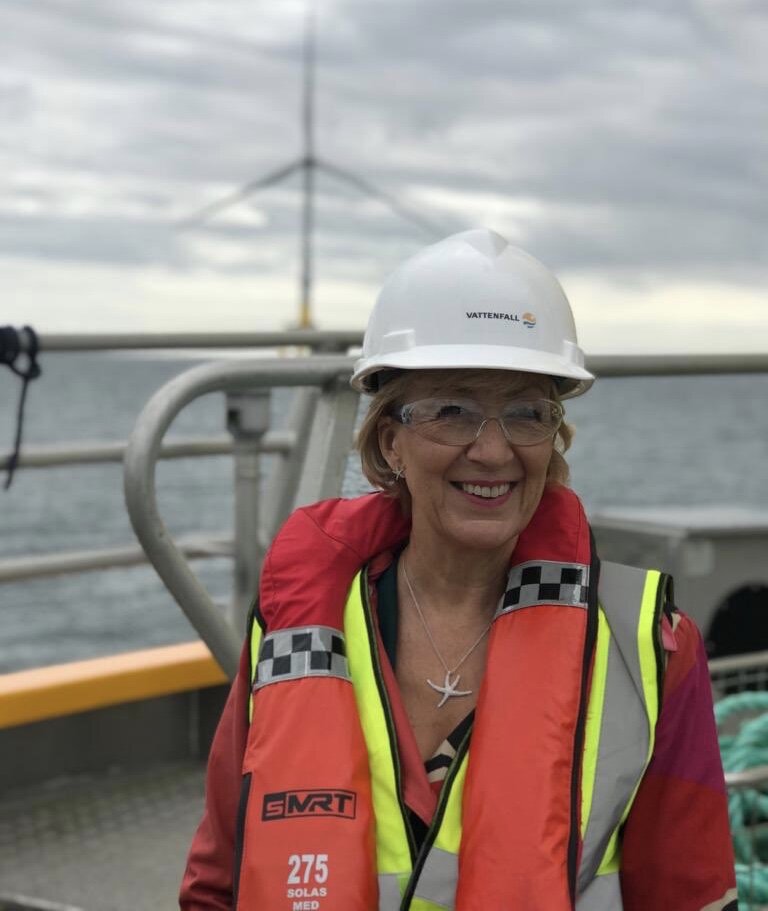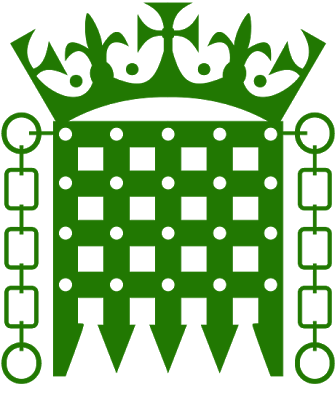Climate change, grand challenges and making the UK the best place to grow a business – my time as Business Secretary

Losing your job, whatever job you do, is tough. But after what was only six months running the Department for Business, Energy and Industrial Strategy, I want to pay tribute to the fantastic work of the many different civil service teams I worked with. From the excellent Alex Chisholm, Permanent Secretary of BEIS, to the ‘private office’ team who worked flat out delivering the government’s objectives, to the policy teams on subjects as diverse as climate change, keeping the lights on, economic shocks, innovation, national security, employment law, corporate governance, Brexit readiness and many others - I am immensely grateful for their support and hard work - a short but sweet experience!
And we achieved a tremendous amount, right from the first day when I sat down with my new ministerial team - Nadhim Zahawi, Chris Skidmore, Kelly Tolhurst, Ian Duncan and Kwasi Kwarteng - and I put the question to them: ‘what do we want BEIS to be famous for?’
Early on we set out a clear mission for BEIS: to build a stronger, greener United Kingdom. And to deliver that mission we agreed there would be three key priorities: first, that the UK will lead the world in tackling global climate change; second, that we will solve the Grand Challenges facing our society; and third, that we will make the UK the best place in the world to work and to grow a business.
Of course, six months is not enough. But I am really proud of what we did in that time - and as my constituents, I wanted to share with you some of my actions as Business Secretary.
Leading the world in tackling global climate change
The UK has a strong record on climate change that is wrongly ignored. We’ve reduced emissions by 43% since 1990, while the economy has grown by 72%. We’re decarbonising faster than any other G20 country.
But there is much more to do - and a huge “early-mover” advantage in doing it. Low carbon technology and investment has already led to 460,000 green-collar jobs in the UK: and the Government aims to reach two million by 2030.
To achieve our Net Zero by 2050 target, we have to look across the entire economy. So within the Department we produced a ‘roadmap to net-zero’, setting out industry by industry a timetable for producing the different decarbonisation plans across every sector of the economy. The intention is that by the time Glasgow hosts COP 26 this November, we will have already mapped out our own pathway to Net Zero in the UK.
A key part of that pathway to Net Zero will be mapped out in the Energy White Paper (to be launched in mid March) which will set out the routes to doubling electricity generation to meet the massive expected hike in demand as we decarbonise everything from transport to industry, homes and buildings. Keeping the lights on whilst we transform power generation is no small task, and the questions of changing the grid to accommodate new connections, the subsidy basis for renewables, as well as the need to minimise the impact of grid infrastructure on local communities are all key considerations.
Emissions have significantly decreased in the power sector as a result of the changes we have made to how we power the grid. In 2019, renewable energy sources provided more electricity to UK homes and businesses than fossil fuels for the first time. While I was at BEIS, we built on this, adding 6GW of clean energy to the grid by 2025 - enough to power over seven million homes at record low costs. Offshore wind plays a key part in UK power generation and will deliver at least a third of our electricity by 2030.
Of our current energy supply, only a small percentage now comes from coal, the dirtiest fossil fuel. But I was pleased we have now announced we will cut coal from the grid entirely by 2024 and will no longer provide any new direct official development assistance, export credit, investment or trade promotion for thermal coal mining or coal power plants overseas.
To find alternative sources of clean energy, I announced a £200 million initial fund to design and build a nuclear fusion power plant by 2040, delivering what will be clean, safe and inexhaustible power. We have also made great progress in supporting the development of small modular reactors and advanced modular reactors - keeping the UK’s strong commitment to developing new sources of nuclear power.
An announcement that caught lots of attention - including from constituents - was the moratorium on shale gas extraction. I have always set out a clear position on fracking - that it can only be done if it can be done safely. As scientific analysis following the seismic activity at Preston New Road showed, we cannot currently be certain its risks are manageable - and so until that evidence changes, I took the decision to call a halt.
It’s now widely accepted that changes to our energy supply are crucial to reduce our carbon emissions - but there is also a real effect on customers and their bills, so it was good news that Ofgem announced the price cap for energy will fall by £17 - saving money for around 11 million households.
The Energy White Paper will be followed later this year by the BEIS plan for decarbonisation of business and industry - as the second biggest emitting sector after transport, there is a big opportunity to focus on carbon capture, usage and storage, and emerging hydrogen technologies, to provide not only a significant reduction in carbon, but also a significant boost to the economy in the industrial clusters in the North of England, in Scotland and in Wales, where the levelling up agenda is so vital. Ensuring energy costs are competitive will be critical for the future success of UK heavy industry such as steel and ceramics.
The key carbon emitting sector, that BEIS has done a great deal of work on, is transport. Together with the DfT, we have announced government investment of up to £1 billion over five years to boost the production of key green technologies in the motor industry. We have committed £400 million for electric vehicle charging infrastructure including 3,600 new electric car charge points to be installed on residential streets, giving ‘range confidence‘ to those who want to switch to electric.
We have also announced a government consultation on bringing an end to the sale of new petrol and diesel cars and vans by 2035, or even earlier if a faster transition is possible.
There’s no doubt that citizens across the UK are eager to do their bit to reduce their carbon footprint. So the creative online team in BEIS are building a new app aimed at younger audiences to provide advice on how individuals and families can take action. I look forward to its launch, as well as to its second phase which will be designed to help businesses and the public sector. Working with schools, universities and voluntary groups such as scouts and guides will help young people to contribute positively to the widely shared ambition of a zero carbon future
But of course, the UK is just one country - and to limit climate change in a meaningful way, the entire world needs to share this common goal. That’s why the Prime Minister doubled our international climate finance spend from £5.8 billion to £11.8 billion in September, and I launched the Ayrton Fund, a new £1bn fund to provide clean energy innovation to developing countries.
Since 2011, UK climate finance has provided 26 million people with improved access to clean energy. It has supported 57 million people to improve their defences against the effects of climate change; reduced or avoided 16 million tonnes of greenhouse gas emissions; and installed 1,600MW of clean energy capacity. It’s a strong contribution to tackling global climate change that I was proud to be a part of.
When we host COP 26, I hope that we will deliver some game changing major agreements, such as:
Creating an internationally recognised carbon offset licensing body;
Announcing significant bilateral/multilateral pledges for reforestation and renewable energy generation;
Launching an international ‘green finance’ bank that will support the long term investment necessary.
Creating a Year Book, with each nation providing its own page of pledges, commitments and achievements that can be built on each year.
Whilst I was unable to attend COP 25, I understand from others who were there that major challenges in agreeing legally binding action are ‘accountability’ ie ‘why should we risk our economic development?’ And ‘accounting’ ie what are the agreed measurements for carbon reduction? COP 26 must address these challenges, and I am delighted that Alok will be taking on the role of COP President as well as BEIS Secretary of State - combining the policy responsibility with the delivery of global agreement is, in my view, the right approach.
Solving the Grand Challenges facing our society
The second key priority we established for BEIS is to solve the grand challenges facing our society - helping us live longer, healthier lives; to boost productivity right across the UK; and to seize the extraordinary opportunities of the fourth industrial revolution - from automation to artificial intelligence, and from robotics to advanced manufacturing to space technology.
As part of this, we announced a wave of programmes - worth a total of nearly £500 million - to help improve lives and increase productivity:
research into care robots that could make caring responsibilities easier;
research into teenage mental health issues;
developing supercomputers to better predict everything from weather events to traffic jams,
creating a new productivity institute to level up right across the UK.
and digitising museum exhibitions to make them accessible to everyone
Projects like these mean our brilliant UK science sector can create real change that benefits us all. We also announced the intention to create a UK Advanced Research Projects Agency (ARPA) - a new body that will fund pure scientific discovery, using the best brains in the world to develop new ideas that can change the world.
We launched the world’s largest genetics project, which sequences the genomes of 500,000 volunteers. This public-private collaboration will help scientists to understand, diagnose, treat and prevent life-changing and life-threatening diseases such as cancer and dementia.
To help us attract the best and brightest scientists to come and work on projects like these, we announced an unlimited fast-track visa scheme for the world’s top scientists and researchers, and a two year work visa for overseas students coming to the UK to study.
The Queen’s Speech committed to prioritising investment in infrastructure and world-leading science research and skills - helping us improve lives and productivity across the country.
But we also looked outward. To build on the UK’s existing world leading expertise in space, we announced record investment in the European Space Agency to deliver international space programmes over the next 5 years. The UK is one of the founding members of ESA, an inter-governmental, non-EU organisation established in 1975 to promote cooperation in space research, technology and applications development. ESA brings together countries to collaborate on projects like the International Space Station and the ExoMars programme: which sends a UK-built rover to Mars to search for signs of life. The investment will help us monitor the impact of climate change - much of which can only be seen from space, as well as protect our power grid and improve communication and connectivity.
Making the UK the best place to work and to grow a business
My third key priority as Business Secretary was quite simply to make the UK the best place in the world to work and to grow a business.
Our highly professional teams of Civil Servants did this in many varied ways. When it came to Brexit, the Department worked flat out in the run up to last October to help businesses get ready for leaving the EU without an agreed deal:
our Business Readiness Fund supported 124 Business Representative Organisations and trade associations;
we held 30 business events over five weeks as well as weekly online advice surgeries and business roundtables across the UK
I personally went to Belfast, Aberdeen, Cardiff and Manchester to host nine business roundtables and meet with over 250 different businesses, as well as attending daily Brexit cabinet committee meetings
We completed plans to support the Single Electricity Market between RoI and NI, as well as creating a help desk and financial support mechanisms for SMEs in the event of a no deal Brexit.
In total BEIS gave specific, tailored advice to more than 5,000 businesses all over the UK, either face to face or online, in the run up to October 31.
Our commitment to ensuring the UK is the best place in the world to work was core to everything we did. I was proud to announce Jack’s Law a few weeks ago - introducing a new right to paid parental bereavement leave for working parents whose child dies under the age of 18, named after Jack Herd, a toddler who tragically drowned and whose Mum, Lucy, campaigned for years for kinder employment laws.
I was delighted that our announcement on the National Living Wage at the start of this year will give the lowest-paid workers a 6.2% pay rise from April 2020 - the biggest cash increase ever.
I also worked hard with Kelly on finalising the Employment Rights Bill, which was promised in the Queen’s Speech. The Bill will:
enshrine the UK’s status as ‘best place in the world to work’ by encouraging flexible working as standard,
introduce a new entitlement to leave for unpaid carers,
ensure the right to transparency of employment terms and for regular working hours.
Working on this, together with the policy to introduce neonatal care leave, was a great pleasure, and I look forward to seeing the Bill introduced in draft.
On making the UK the best place in the world to grow a business, there remains much to be done. I would like to see the creation of a UK Development Bank to support start ups and ‘scale ups’ (particularly for women and young entrepreneurs), green finance (for households and businesses), for building new infrastructure and for innovation finance as we build an economy fit for the extraordinary opportunities that lie ahead. The British Business Bank would be a good platform to build from.
The Small Business Commissioner will be given new powers to enforce the prompt payment code and, in order to provide easier access to existing grants, business advice and loan opportunities, BEIS have created a web based portal for SME users.
On corporate governance, after the failures of Carillion, Thomas Cook and others, we undertook a fundamental review, supported by the comprehensive work on audit of Sir John Kingman, the CMA and Sir Donald Brydon. There’s no doubt in my mind that corporate directors need to be held to greater account for failure, including clawback of bonuses and even prosecution. Audit needs to become a separate profession to provide more competition and better analysis of corporate challenges such as climate exposure and diversity performance. The Stewardship Code needs to hold asset managers to account for their oversight of the businesses they invest in. For the UK to be the best place in the world to grow a business, we need to ensure the ‘few bad apples’ don’t give UK business a bad name. As Secretary of State, I was privileged to meet with some exceptional business owners and leaders, and there is no doubt that they too want to see the highest standards, whilst urging ‘good’ regulation rather than ‘more’ regulation.
Our Red Tape Challenge will give businesses large and small the chance to propose simpler and more logical regulations.
The final reflection on my time in BEIS was the work I did on individual corporate situations. I would dearly have loved to finalise the sale of British Steel on my watch - a positive outcome is so close! Good luck to Alok with getting it over the line - I was incredibly proud of the intense work the Steel Team, Nadhim and I put in to make it happen.
On Flybe, keeping critical routes flying and regional airports thriving was a top priority for me. On Thomas Cook, a huge regret is that there was no viable way to save the company from its debt mountain - the taxpayer can never become the ‘bail out of last resort’ for companies whose directors appear to have been incompetent. With DWP, we did everything possible to support the staff who lost their jobs, and to help those whose insurance claims against the holiday company were affected.
And there were a number of corporate takeovers that I investigated under the Enterprise Act - a vital part of protecting UK national security interests, and one that will be boosted by the introduction of the National Security and Investment Bill later this year.
So that’s just a flavour of the varied and fascinating work I did in BEIS - not bad for six months, particularly when you consider that at least six weeks of it was on the campaign trail!
I am grateful to the Prime Minister for giving me the chance to influence the direction of our economy at such a crucial time - when the world will be watching with great interest our direction of travel and our successes outside the EU.
In South Northamptonshire we have many highly productive and innovative businesses and I look forward to continuing to support their specific needs through regular visits as well as via my quarterly Business Lunch Club.
If you would like me to visit your business in the constituency then please get in touch.





